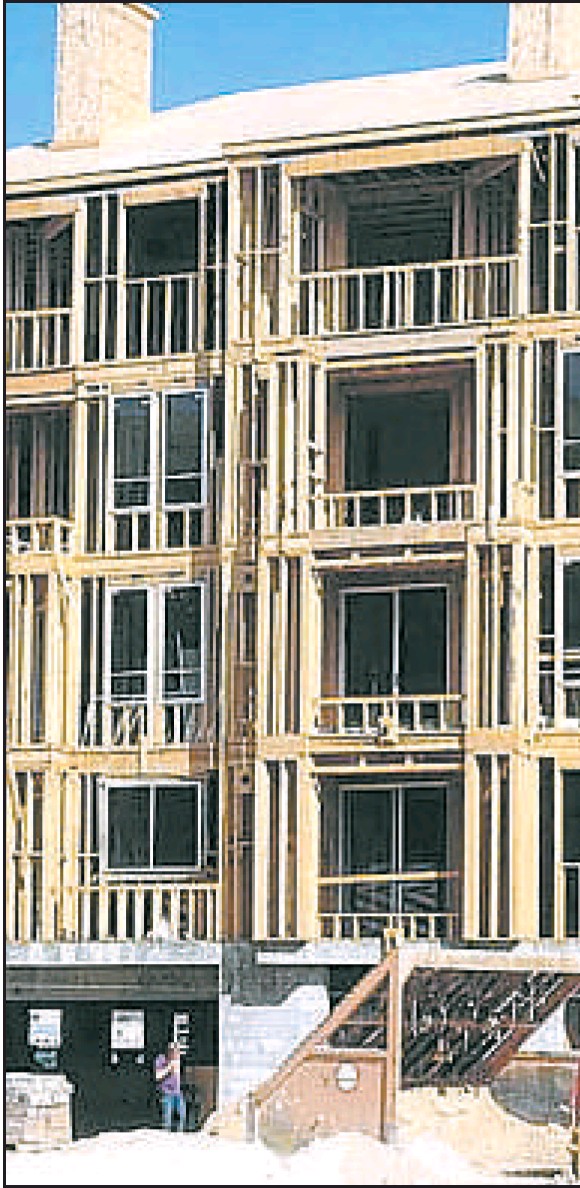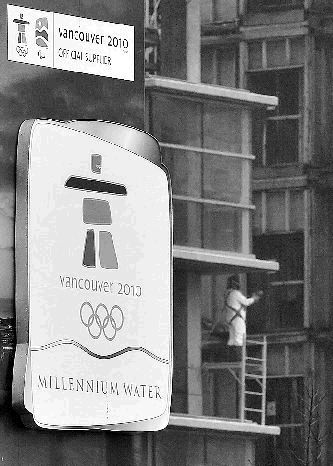Archive for January, 2009
Layoffs: Managers may need training
Monday, January 19th, 2009Get legal advice on cancelling pre-sale
Sunday, January 18th, 2009Tony Gioventu
Province
Dear Condo Smarts: Is a pre-sale agreement a finalized agreement for sale and purchase?
A group of investors that I am involved with from Alberta have decided that under the current market conditions we will not proceed with our pre-sale agreement on five units in a new development.
The developer’s lawyer has advised us that we will be in breach of the sales agreement and liable for any of the damages or losses incurred. How can we be held responsible for something that does not yet exist and is over one year behind completion? It seems to me that the purchasers have little or no protection in these purchase agreements.
— D.C.
To DC and everyone who has entered into a pre-sales agreement: The agreement for the most part is a contract between you and the developer.
It is not a sales agreement, but rather an agreement that reserves the right for you, the buyer, under the terms and conditions of the contract, to purchase the unit once the project is complete, at the specified price and cost adjustments set out in the agreement.
There are a number of issues that pre-sales buyers need to be mindful of:
– No two contracts are the same and whether you are entering into a new contract, completing the transaction, buying the transfer of a pre-sales agreement, cancelling the agreement or altering the terms of the agreement, you need legal counsel from an experienced real estate and contract lawyer.
– There is no actual conveyance of real estate until the product is complete, the titles have been created and the transaction documents are finalized.
– As this is a contractual relationship, it is quite possible that you will be responsible for much more than simply the loss of your deposit for cancellation.
– A breach of the contract by the developer might be reasonable grounds to terminate the contract without serious penalties.
There may be other associated damages and penalties in the contract. However, the developer may also wish to alter, postpone or cancel the agreement, so the terms and conditions of the contract are absolutely critical.
The current credit crunch has also placed a number of small investors at serious risk as they might be struggling to qualify for financing to complete their sales agreements.
Consult your financial adviser and your lawyer, and review the contract before you make any hasty decisions.
If you are planning on renting your unit as an investment, confirm that the pre-sales agreement contains a provision for a Form J “owner developer rental disclosure statement” that properly secures the exemption of the first purchaser to rent in exemption of possible future rental bylaws by a strata corporation.
Tony Gioventu is executive director of the Condominium Home Owners Association.
© Copyright (c) The Province
North End of Granville Bridge Street Grid System to be approved by Vancouver City Council
Saturday, January 17th, 2009VANCOUVER Council to vote Tuesday on extending street grid system at the north end of the Granville Bridge
KELLY SINOSKI
Sun


A plan to transform the area around the north end of the Granville Street Bridge into a pedestrian-friendly boulevard dotted with mini-parks and lined with highrises is likely to move forward next week.
Vancouver city council will vote Tuesday on the plan, which calls for rejigging the elevated Granville traffic “ loops” at the end of the bridge — about 2.74 hectares — to extend its streetgrid system and create a multistreet boulevard that will allow pedestrians and cyclists to travel more easily between the downtown core and False Creek.
A city report suggests the number of residents living in the area could increase five-fold from 300 today to about 1,500 under the plan, which is aimed at guiding the redevelopment of the cityowned land in the next five to 15 years. The 100 or so jobs based in the area were expected to remain stable.
“ It’s about making better use of that land,” said Trish French, assistant director of city planning. “ This has been a very under-utilized piece of land and it acts as a barrier for people trying to move on foot or bicycle between the downtown and False Creek.”
The plan calls for the traffic loops to be replaced by an Hconfiguration of streets that connect with the surrounding roads and the bridge. The new streets proposed — unofficially named East Rolston, West Rolston and Rolston Way — would be narrower than typical streets but would carry the bulk of traffic, which French said is relatively light, with fewer than 5,000 vehicles per day.
Rolston Way, a two-way street, would cross Granville, linking to the other two streets, which would be one-ways north and south.
The city report dubs the area, bounded by Pacific, Howe, Drake and Seymour, a “ valley gateway” to the downtown. It proposes townhouse-lined streets leading to False Creek, with somewhat lower buildings on the Granvillefronting sites, flanked by higher towers on the Howe and Seymour fringes. The idea is to upgrade the area, most of which is city-owned, in terms of image and economic viability.
The beginnings of the plan were first floated in 2002, when city council adopted its Downtown Transportation Plan , French said. She added that much of the area — including the former Travelodge site and the Yale and Cecil hotel sites, which are privately owned — have already been rezoned to conform with the evolving plan.
The Yale Hotel would be retained and upgraded as a heritage building, with 43 existing affordable housing units. The report also states that among the public benefits would be funding for up to 160 replacement lowcost housing units, to replace those at the Continental and Cecil hotels.
A reconstruction of Granville Street from Drake to Cordova is also scheduled to be completed this year. And the Vancouver park board is calling for miniparks in the area bounded by Burrard, Helmecken, Granville and Pacific.
The city estimated in the spring of 2008 that it would receive about $ 14 million in community amenity contributions from redevelopment of cityowned land.







